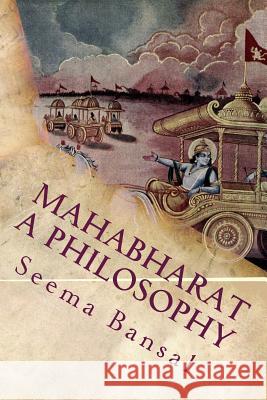Mahabharat a philosophy » książka
Mahabharat a philosophy
ISBN-13: 9781506008813 / Angielski / Miękka / 2015 / 160 str.
Mahabharat is the longest epic written till date. It is extremely unique and fascinating. It covers a time span ranging almost infinity. But, it has lots of relevance, to today's life. In the narrative plots and subplots are intertwined. The characters are absolutely real neither good nor bad all the times. But good and bad are in continuation. The good have their moments of baseness and the evil touch magnanimity. One wanders at times, whether the so called evil is a perpetuator as he is portrayed or a victim. You empathize with their inner turmoil. Mahabharat traverses a time span of thousand years. So the question that haunts the reader is the viability of the entire narration. The entire piece was composed in a time span of three years. Well the two statements appear contradictory in character. In the olden times stories were narrated from generation to generation by raconteurs. Finally a learned, Brahmin (priest), decided to pen it down for posterity. He composed and classified all the verses. But the highlight is its relevance in today's world of raging adrenalin and wars across the continents. At times it becomes absolutely important to wage wars, to eradicate evil and establish goodness in the world. But at the end of it, there is innumerable loss of human life, both on the victim and the perpetrator's side. Thus arises the question Is it worth waging a war at all in the first place Probably yes. Otherwise goodness would die a slow death. The narrative is replete with complexities in human relationships.
Zawartość książki może nie spełniać oczekiwań – reklamacje nie obejmują treści, która mogła nie być redakcyjnie ani merytorycznie opracowana.











